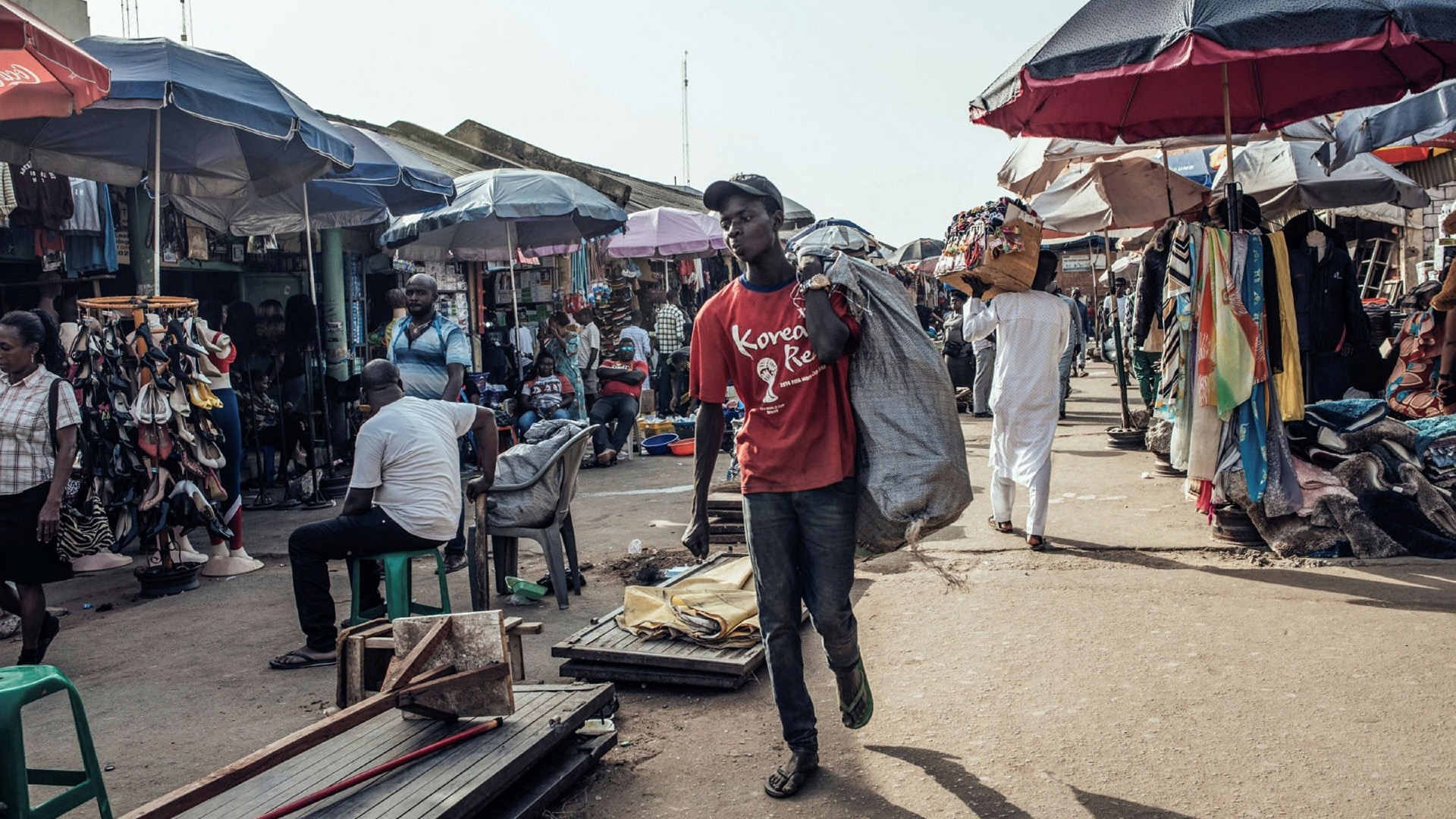Nigeria’s graduates live ‘hand to mouth’ as jobs crisis worsens
 Knwledia News
Knwledia NewsUnemployment rate has quadrupled to 33% since Buhari took office in 2015
Most days, Clement Akinnouye heads down to a market near his home in the northern Nigerian city of Kaduna to sell shoes or domestic goods for local traders, a far cry from what he thought he would be doing when he graduated with an operations management degree five years ago.
The 24-year-old makes a few thousand naira ($7-$13) a day, but the work is irregular. “I’ve applied for over 100 jobs since I graduated — at the federal civil service, civil defence, Nigerian customs service, NNPC [the national oil company], federal road safety, even Nigerian prisons,” said Akinnouye, who has lived on his own since he was 12 and put himself through university in Kaduna. “To get work here is very, very hard for normal people, unless you know someone.”
Akinnouye is one of millions of jobless young Nigerians, victims of an economic crisis that is driving up poverty and sowing insecurity across Africa’s most populous country, which has just barely emerged from its second recession in five years.
The unemployment rate has more than quadrupled since President Muhammadu Buhari took office in 2015, to 33.3 per cent. The more than 60 per cent of the workforce that is under 34 years old has it even worse: more than half (53.4 per cent) of people aged 15-24 and 37.2 per cent of people aged 25-34 were unemployed in the fourth quarter, according to government figures.
Nigeria pumps out hundreds of thousands of fresh university graduates each year, and millions more young people lacking degrees enter an economy that cannot produce enough jobs to absorb them. About 19m Nigerians entered the labour force in the past five years — or 300,000 every month — according to World Bank estimates, but just 3.5m jobs were created during the period, meaning 80 per cent of new workers ended up unemployed. “Going forward, nearly 30 million new jobs would be needed by 2030 just to keep the current employment rate constant,” according to the bank’s Nigeria economic update.

When Buhari first took office, Nigeria was entering its first recession in decades. The country, which relies on crude for about half of government revenues, had barely recovered from the 2015 oil price crash when coronavirus sunk its main commodity again last year.
Critics have long argued that the Buhari administration’s policies — including maintaining multiple exchange rates, which it is only now taking steps to unify — prolonged the recession.
People also read
- Advertisement -
The government has gone further than any predecessor in developing support programmes for individuals, families and small businesses, said Zainab Usman, Africa director at the Washington-based Carnegie Endowment for International Peace. She added: “After decades of not doing much I think it’s great to see that Nigeria is making progress . . . but they [the policies] are still not enough.” Government officials were unavailable for comment.
Along with rampant joblessness, Nigerians must also contend with 20 per cent inflation, with food inflation at a 12-year high, and economic growth that lags far behind one of the highest population growth rates in the world.
“I think the government really needs to look into helping create more industries to accommodate more of these professional courses that we study in the university . . . instead of having to import every single thing we use,” said Maryam Ado, who graduated with a degree in glass and silicate technology in 2018 but sells bags and shoes online to make extra money to get by.
Young people across the country complain that the few jobs that are offered are usually reserved for the friends and family of government officials or businessmen. The rest are often only available to those who are willing to pay extortionate bribes.
In Nigeria you have to know someone, who knows someone, who knows someone — and you have to pay someone, who pays someone, who pays someone, before you get that job,
said Akinnouye
You have people who have graduated for 10-15 years who have no jobs, who now resort to menial jobs or even just living hand to mouth, some are driving kekes [local three-wheel rickshaws] because you try and try and try and nothing has happened,
said Aliyu, a 31-year-old who has not had a full-time job since graduating with a political science degree in 2014
You are left with this little hope and it just goes day by day by day — it’s horrible, it’s horrible.
The economic crisis has helped to fuel a nationwide banditry epidemic, where roving gangs of armed young men kill and kidnap for ransom. “Look at the rate at which they are kidnapping people now — don’t be surprised if a lot of these youths have been trying to get a job, but they don’t have options, and so they start doing this, they start defrauding people online,” said Bisola Lateef, a 2018 accounting graduate in Kaduna who sells bags and shoes online. “There will be high rates of criminality everywhere, and it will get worse if this continues.”
Sumaaya Tofa, a recent graduate in international studies, worried that her generation’s disillusionment could have dire consequences not just for the security of the country but also the prospects of higher education in Nigeria.
Most of us believe that you go to school and get a certificate so you can work and earn something . . . [but] if you come into the world and can’t get a job, people start thinking, oh, what’s the point anyway?” she said. “I think most of us feel very hopeless about the situation right now.
Source
Financial Times
